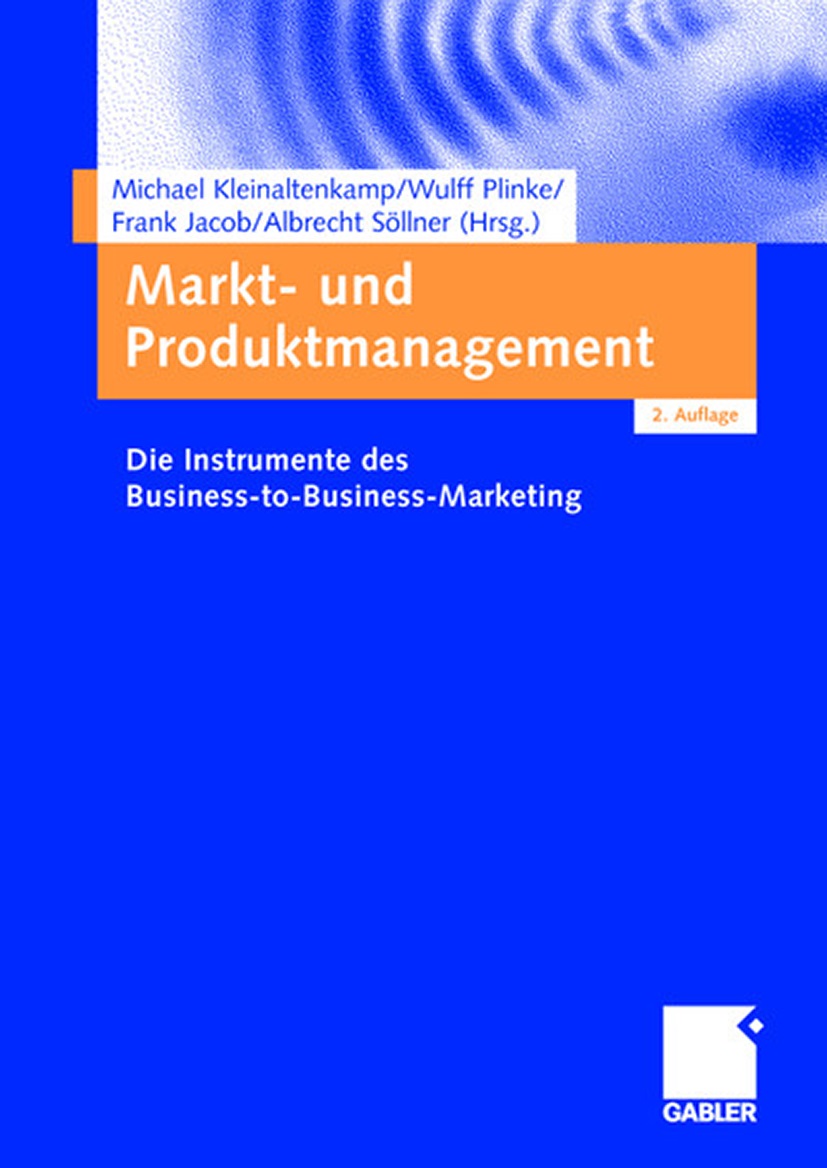Academic articles
Practitioner articles
Working papers
Books
Book chapters
Case studies
Other publications
Subject(s)
Technology, R&D management
Keyword(s)
Brazil, telecommunications
Purpose - This article seeks to discuss LUZ, a Brazilian energy supplier that has decided to use their network for telecommunication. Design/methodology/approach - This case describes the acquisition-process from the perspective of the ESCRA sales manager, whose actions are analyzed, evaluated and discussed in class. Findings - LUZ, a Brazilian energy supplier, has decided to use their network for telecommunication. They found a subsidiary named LUZATEL for purchasing the required IT equipment. Four IT companies make it to the short list. One of them is ESCRA. ESCRA is a large Swedish producer of telecommunication equipment, who has recently started to additionally offer IT solutions. Originality/value - This paper uses a Brazilian energy supplier as a case study.
With permission of Emerald
Volume
21
Journal Pages
189–194
Subject(s)
Economics, politics and business environment
Keyword(s)
European state aid control, economic methods
JEL Code(s)
H25, U21
Secondary Title
The EC state aid regime: Distortive effects of state aid on competition and trade
Pages
145–182
ISBN
978–1905017348
Subject(s)
Economics, politics and business environment
Keyword(s)
growth, infrastructure, political economy, lobbying, France
JEL Code(s)
D72, D78, O40
This paper proposes a simultaneous-equation approach to the estimation of the contribution of transport infrastructure accumulation to regional growth. We model explicitly the political-economy process driving infrastructure investments; in doing so, we eliminate a potential source of bias in production-function estimates and generate testable hypotheses on the forces that shape infrastructure policy. Our empirical findings on a panel of France's regions over 1985-92 suggest that electoral concerns and influence activities were, indeed, significant determinants of the cross-regional allocation of transportation infrastructure investments. By contrast, we find little evidence of concern for the maximization of economic returns to infrastructure spending, even after controlling for pork-barrel.
With permission of Elsevier
Volume
90
Journal Pages
1133–1153
Subject(s)
Economics, politics and business environment
Keyword(s)
regulation, merger policy, state aid and anti-trust
Over the last decade, sector-specific regulation has been used to promote competition in European network industries. Given that competition is still rudimentary in some sectors, this process is still not finished. As a result, Member States have continued to remove regulatory barriers in network industries. This paper discusses the experiences from the energy, telecommunications and transport sectors by focussing on the role of European competition policy. We review a number of important case decisions in merger control, anti-trust and state aid control and discuss their implications for market opening. We conclude that a more holistic approach is needed in order to increase the effectiveness of competition policy instruments, i.e. a closer co-ordination of competition instruments, in particular state aid and anti-trust/merger policy.
© Verein für Socialpolitik und Blackwell Publishing Ltd. 2006
Volume
7
Journal Pages
355–372
Subject(s)
Finance, accounting and corporate governance
Keyword(s)
Dienstleistungen, Unternehmensberatung, Wissensprodukte, Business-Märkte
Pages
30
Subject(s)
Economics, politics and business environment
Keyword(s)
competition policy, market definition
JEL Code(s)
K21, L40
Secondary Title
Recht und Ökonomie im Europäischen Wettbewerbsrecht
Pages
29–40
ISBN
978–3–8329–1962–7
Subject(s)
Human resources management/organizational behavior
Keyword(s)
60-degree instrument, human development, life cycle, motivational need systems, psychodynamic approach, personality assessment, executive functioning, inner theatre
Volume
17
Journal Pages
898–917
Subject(s)
Economics, politics and business environment
Keyword(s)
mergers, acquisitions, restructuring, voting, proxy contests, corporate governance, antitrust law, antitrust issues and policies
Volume
2
Journal Pages
9–28
Subject(s)
Marketing
Keyword(s)
business-to-business marketing
Secondary Title
Markt- und Produktmanagement: Die Instrumente des Business-to-Business-Marketing
Pages
497–547
ISBN
978–3–8349–0091–3
Subject(s)
Marketing
Keyword(s)
business-to-business marketing
Eine traditionelle Kernaufgabe von Marketing-Entscheidern ist die Planung und Gestaltung von Maßnahmen zur Bearbeitung umfassender Märkte oder Marktsegmente. Diese Aufgabe findet ihren konkreten betrieblichen Niederschlag oft im Produktmanagement.
In "Markt- und Produktmanagement" analysieren namhafte Autoren Methoden und Ansätze zum Management
- des Leistungsprogramms, - der Distribution, - der Kommunikation, - des Leistungsentgelts und der Vertragsgestaltung.
Die Perspektive ist branchenübergreifend und umfasst die gesamte Breite des Business-to-Business-Sektors, also sowohl klassische Industriebranchen als auch die Bereiche der unternehmensbezogenen Dienstleistungen.
In der 2. Auflage wurden aktuelle Entwicklungen aus der wissenschaftlichen und praktischen Diskussion aufgenommen, z.B. zur Netzwerkökonomie und zum Performance Contracting. Die Ausführungen zum Produktmanagement wurden erweitert. Das Buch wendet sich an Dozenten und Studierende der Betriebswirtschaftslehre mit dem Schwerpunkt Marketing sowie an Führungskräfte und Führungskräftenachwuchs aus dem Bereich Vertrieb oder anderen kundennahen Unternehmensbereichen, deren Tätigkeitsschwerpunkt in der Vermarktung von Produkten oder Dienstleistungen an Geschäftskunden liegt.
Volume
2nd ed.,
Pages
811
ISBN
978–3834900913


